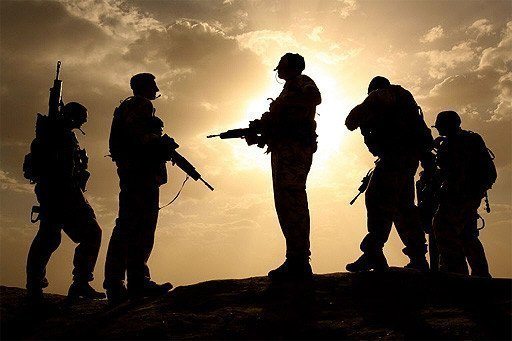Russia would be unable to disrupt the US military’s withdrawal from Afghanistan even if it cut off access to supply routes across its territory, a top US commander said Wednesday.
Amid rising tensions between Washington and Moscow over the crisis in Ukraine, the head of NATO-led forces in Afghanistan reassured lawmakers that Russia could not hold up a planned troop drawdown there.
“I’m absolutely confident we’ll be able to” remove all US equipment on schedule, General Joseph Dunford told the Senate Armed Services Committee.
“Even if the Russians cut off one of the avenues?” Senator John McCain asked.
“Yes, senator,” Dunford said.
The general said that “we’ve got resilience in the system and I’m not concerned at all about a loss of the Russian northern distribution network, the Russian piece of that.”
Dunford was referring to a network of road and rail routes that pass through Central Asia, the Caucasus and, in some cases, Russia.
The primary supply routes for US forces in Afghanistan still run through Pakistan but the Pentagon set up the alternative channels through Central Asia after friction with Islamabad triggered border closures.
With the bulk of US and NATO forces due to withdraw by the end of the year, a major drawdown is under way and vast amounts of military hardware are being ferried out across the Pakistan border.
‘Begin to deteriorate’
Roughly 40 percent of supplies are moving through the Pakistan roads at the moment, defense officials said.
President Barack Obama and lawmakers in Congress are threatening sanctions against Russia over its military intervention in Ukraine’s Crimean peninsula, and European Union governments are also weighing possible punitive measures.
Moscow in turn has warned that any sanctions will have a “boomerang” effect on Washington.
Dunford told the same hearing that US forces in Afghanistan will need to have a security accord with Kabul in place by September, otherwise the NATO mission will have to launch a full withdrawal.
The security pact would lay out a legal framework for foreign forces to remain beyond December.
But President Hamid Karzai has refused to sign the bilateral security agreement, casting uncertainty over plans to keep a small US-led force in the country beyond the end of this year.
Dunford said the absence of a deal has not yet created logistical problems for the NATO-led force, which includes more than 33,000 US troops.
Military planning would become complicated but “manageable” if the delay continued through July and August, he said.
The White House has said it is prepared to have no troops left in Afghanistan if Kabul’s leaders fail to sign the security pact. But Dunford warned that a total pull-out would weaken Afghan forces, endanger Afghan women and invite a potential revival of Al-Qaeda militants.
“If we leave at the end of 2014, the Afghan security forces will begin to deteriorate,” Dunford said. “The security environment will begin to deteriorate, and I think the only debate is the pace of that deterioration.”










